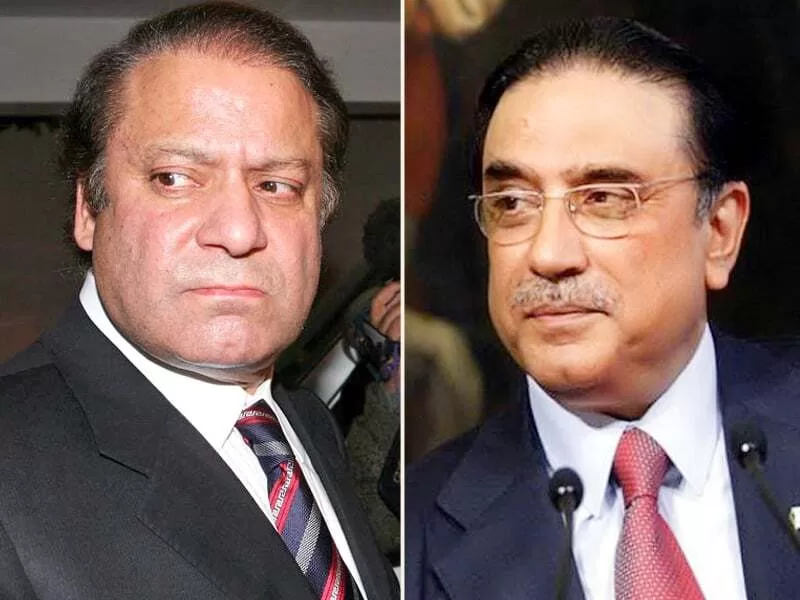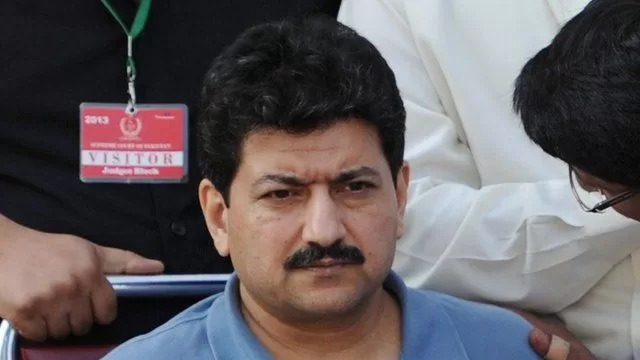Dear Readers,
There are many, way too many things that are going wrong in Pakistan; it faces numerous problems many of which sadly are of its own making. This is in no way unique to Pakistan, all countries without exception face difficult situations, some are self-mode but with time and good governance, these are overcome. It is a shame that more than six decades after independence we are still struggling to achieve all round dynamism as a State.
The terrorism that haunts Pakistan has multiplied like the mythical Hydro, the water serpent that grew more heads even as one was severed. Today, even as the government tries to engage the terrorists in peace negotiations our security personnel continue to be targeted. In a recent attack at least 9 FC personnel were martyred and several injured in on IED explosion Miranshah in North Waziristan. Another attack on a military check post in South Waziristan took the life of one security personnel. Because of the absence of mature or visionary leadership after the death of the Quaid-e-Azam a series of factors combined to create polarization of society. The nation’s basic foundations were eroded time and again by inefficient and highly corrupt administrations. With the passage of time a vacuum was created which provided breeding grounds for terrorists (and other criminals) and since then the menace has flourished.
Already buried deep in problems, Pakistan finds itself in the midst of another bizarre development – the civilian-military relationship is being viewed with some skepticism because of certain factors such as the ongoing trial of Pervez Musharraf, the assassination attempt on Hamid Mir that gave rise to the simmering Geo-ISI controversy, etc. Thereafter, some rather silly comments by a federal minister or two hove only added fuel to the fire. For the benefit of readers I am reproducing my article “DANGEROUS GAMES”.
Far better than Asif Ali Zardari except in the one that counts in Pakistan, pragmatic common-sense politics, Mian Sahib is genuinely popular among the electorate. Zardari is (and was) not, nevertheless he deftly cobbled together a coalition government and kept most of them happy most of the time. Being subjected to blackmail by his political partners from time to time was only a temporary inconvenience, duly assuaged by requisite sums of money and privileges.
The former Chief Justice (CJ) staged a judicial “filibuster” in the Supreme Court (SC) on the National Reconciliation Order (NRO) issue, etc, creating courtroom hype he huffed and puffed about the most egregious document ever in the history of Pakistan but allowed NRO’s beneficiaries to continue to rule and loot. The SC’s inaction and Kayani’s love for his brothers and “democracy”, in that order, gave Zardari the space he needed to function with impunity. He proved himself master of the political game by comprehensively outmaneuvering the Sharifs.
Reciprocating “quid quo pro” to the Sharif support circa 2008-2013 is for cold reason and calculation thereof. Keeping the federal government away from mis-governance in the name of provincial autonomy allows Zardari unfettered access to the riches of Karachi real-estate. The people of Sindh do not love Zardari, they fear him. Feudalism is not only alive and well but flourishing in rural Sindh, the Sindh Local Bodies Ordinance is meant to convert Sindh into “Fortress Bilawal” in the name of “democracy and the people”. How can our feudals ever allow devolution of power to the grassroots level?
Initiating a sound economic agenda, Mian Nawaz Sharif’s major thrust in the energy sector and supporting of Zubair Umar’s transparent effort in privatisation are very commendable. As promised, Ishaq Dar (with a little help from the Saudis), has made the Pakistani rupee come to terms with the US$, the Board of Investment (BOI) has woken up under Miftah Ismail. Against all odds and dire predictions, PIA is showing definite signs of revival under the professionally competent guidance of the PM’s Special Assistant, Capt Shujaat Azeem. Mian Sahib has some very honest and capable people serving him, a whole range of corporate potential is still required to run the many public sector units presently bereft of top management. Millions voted for him, surely a handful must be deemed loyal enough for critical appointments?
Maybe Musharraf should not have been “hijacked” to the Armed Forces Institute of Cardiology (AFIC) on his way to appearing in court. The Pakistan army and the ISI are realities of consequence in this country and will remain so. Quite unnecessarily Geo Group crossed a red line going to town spouting venomous propaganda against them. Visiting Hamid Mir’s bedside after his rather wild and unsubstantiated allegations against the DG ISI and the Pakistan army was not sensible. Angels (must) fear to tread where fools rush in! Soldiers from my own unit told me a few days ago they were being taunted by others in the Cantonment about my association with Geo Group. Freedom of expression notwithstanding, this deep-rooted hurt and anger among the rank and file must not be provoked further.

Seemingly stressed the Federal Information Minister Pervez Rasheed is probably on medication. What perception does one get from his signalling that the PM’s bedside visit indicated which side his boss was on? Did the 5000 plus soldiers killed in the war against terrorism or any of the around 19000 injured get similar comfort? Zardari hated the army, notwithstanding compromising Kayani because of his two talented siblings, his venom surfaced only with caution from time to time. Contrary to public perception Mian Sahib’s friends maintain that he has overcome the consuming penchant for revenge, some of his close aides remain so inclined.
Created as a political party in late 1980s by the army, one must forgive those in the PML (N) having an ingrained guilty complex about their establishment origins. Hounding Gen Musharraf is just an excuse to tar and feather the uniform that fed and nourished them into political reality. Once comfortable in the political limelight, matters became complicated with Gen Asif Nawaz Janjua as far back as 1991. Modelling himself on his hero Ayub Khan (belonging to his own unit 5 Punjab), Asif Nawaz shared the Field Marshal’s disdain for politicians. The Islami Jamhoori Alliance (IJI) was cobbled together with the PML (N) as a nucleus for disparate politicians in opposition to Ms Benazir. The IJI being made by Lt Gen Hamid Gul, his closest rival for the COAS post, added to Asif Nawaz’s suspicions. When he unfortunately suddenly died, renowned media anchor Najam Sethi publicly campaigned for investigating the rumours of poisoning, even asking for an autopsy in his editorial of Sep 16, 1993.
Give the Sharifs credit for forgiving Najam this “indiscretion”, the PML (N) continue blaming Asif Nawaz’s successor Gen Waheed Kakar for tacitly supporting President Ghulam Ishaq Khan (GIK) for dismissing their govt in early 1993. With transparent fair play (and refusing the temptation of taking over), the then COAS eventually eased out both GIK and Mian Nawaz Sharif (after his restoration as PM), the subsequent general elections were won by Ms Benazir’s PPP. Threatening to resign on the Musharraf “exit” issue, a dozen plus of Mian Sahib close political aides seem afflicted with the “Masada Complex”, pushing the Sharifs into a stupid no-win confrontation with the army. For the greater good of democracy and economic prosperity of the nation, they should shed this albatross of animosity. While Ahsan Iqbal’s offer for electoral reforms in the wake of Imran Khan’s May 11 demand is the correct democratic way, he could have avoided remarks about the rally being backed by “sources known to all”.
After a period of major stagnation, Pakistan is on the march economically. If the likes of Saad Rafique and Pervez Rashid continue playing dangerous games, a “forced march” could become a self-fulfilling prophecy.




